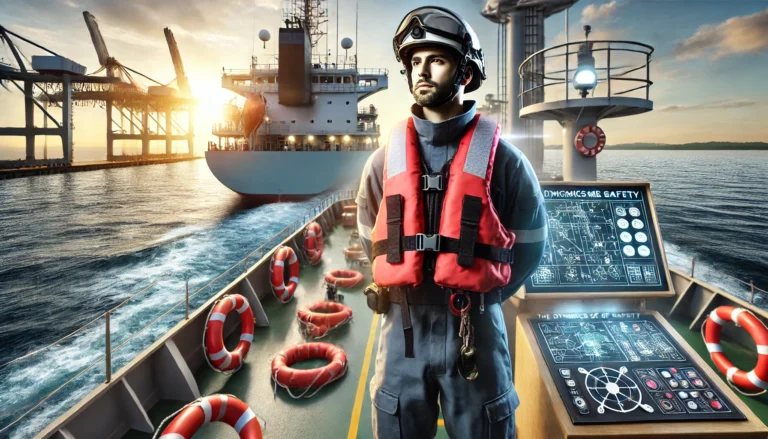Key Takeaways:
- Understand the fundamental principles of maritime safety and why they matter.
- Explore common challenges faced by seafarers and how to address them effectively.
- Learn about advancements in maritime safety technologies and regulations.
- Find out how to prepare for emergencies on the sea.
- Discover reliable resources for further learning and improvement.
The Importance of Maritime Safety
Maritime safety is a significant concern for anyone working at sea. The unpredictable nature of marine environments means that safety is paramount for protecting lives and vessels. With over 90% of global trade conducted by sea, ensuring stringent safety measures is a shared responsibility among maritime professionals. These professionals often assist in cases arising from naval accidents, helping to navigate the complex legal waters and advocate for the rights of injured workers.
Moreover, global initiatives, including those by the International Maritime Organization, continually work towards improving safety protocols. These efforts aim to safeguard human lives and protect the marine ecosystem from potential accidents. Thus, maritime safety extends beyond immediate operational concerns to encompass broader environmental and community impacts. The ripple effects of a single accident can be far-reaching, affecting local economies and ecosystems. Therefore, maintaining high safety standards is not just a regulatory requirement but a moral obligation.
Challenges in Maritime Safety
- Harsh Weather Conditions:The sea can present severe weather challenges like storms and high waves. Navigating these conditions requires exceptional skill and a deep understanding of weather patterns. Mariners rely on accurate weather forecasting to make informed course decisions and timings. Still, sudden climate changes can upend even the best predictions, underscoring the need for constant vigilance and readiness.
- Human Error:Fatigue, stress, and inadequate training can lead to costly mistakes. Mitigating these errors is essential through comprehensive training and ensuring crews are well-rested and alert. Human error is often cited as the most common factor in maritime incidents, making ships need to implement robust systems that promote crew welfare and operational efficiency.
- Piracy and Security Threats:In certain regions, seafarers face piracy risks, necessitating vigilant security measures and awareness to protect crew and cargo. Modern piracy is a persistent threat that calls for international cooperation and advanced security protocols, employing physical defenses and cyber-security measures to protect precious assets and lives.
Addressing Human Error
Human error remains a leading cause of maritime incidents. Addressing it involves rigorous training programs and maintaining crew alertness. Organizations like New Orleans Maritime Attorneys support seafarers in legal matters and promote better safety practices. These can be achieved through simulation exercises and regular skill assessments to prepare for unforeseen circumstances. Implementing technologies that assist decision-making can also reduce the burden on individual crew members, allowing them to focus more on executive commands and less on routine monitoring.
Advancements in Safety Technologies
Technological innovations have significantly advanced maritime safety. Automated navigation systems and advanced radar technology have revolutionized how vessels operate, reducing the risk of human errors and improving efficiency. For example, the World Economic Forum highlights how these technologies are pivotal in reshaping future marine operations, offering better predictive capabilities and real-time monitoring. Innovations in sensor technology, satellite communications, and information systems enable crews to manage threats and proactively make informed decisions.
Emerging Technologies
Emerging technologies, including AI-driven navigation aids and enhanced communication systems, are further cementing safety standards. These tools enable real-time data analysis, allowing crews to make informed decisions quickly and effectively. Furthermore, enhancements in maritime surveillance technology also play a critical role in deterring piracy and enhancing security measures. As technology develops, the maritime industry is expected to adopt increasingly sophisticated systems integrating automated features with human oversight for optimal safety management.
Preparing for Emergencies
Preparing for potential emergencies is crucial for every seafaring vessel. Regular safety drills that simulate various emergency scenarios can enhance crew readiness. Equally important is ensuring that equipment such as lifeboats, life jackets, and emergency communication systems are in optimal condition. The SAFETY4SEA emergency response guide provides invaluable insights into these preparations, emphasizing immediate response actions and long-term planning for survival during crises. Comprehensive emergency protocols ensure that all crew members understand their roles and can act without hesitation when time is of the essence.
Regulations and Compliance
Compliance with established maritime safety regulations is a non-negotiable aspect of operations at sea. Regulatory entities define and monitor these guidelines, ensuring every vessel maintains high safety standards. These regulations cover a broad spectrum, from ship maintenance routines and crew safety practices to environmental protections, thus forming the backbone of safe maritime operations. Compliance is monitored through inspections and certifications, which also serve as benchmarks for modernizing practices and equipment to meet evolving safety standards.
Training and Continuous Learning
Ongoing training is integral to maintaining marine safety standards. Education programs that align with the latest industry practices and technological advancements equip crews with a solid foundation to operate efficiently. Workshops and certifications are valuable tools for supplementing this knowledge, ensuring seafarers keep pace with rapidly evolving safety methodologies and technologies. Continuous learning supports professional development and fosters a culture of excellence and proactive safety management.
Leveraging Resources for Safety Improvement
Numerous resources are available to maritime professionals aiming to improve their safety practices. Online platforms offer access to up-to-date information, best practices, and expert discussions that enhance operational safety. Leveraging these resources is vital for personal and professional development in the maritime industry, fostering a culture of safety-first mindset among seafarers. Community forums, industry publications, and networking events provide additional platforms for sharing insights and experiences, contributing to a collective effort toward a safer maritime environment.

